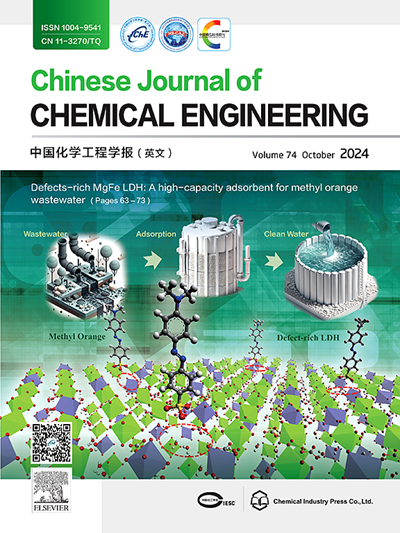Intelligent prediction of ionic liquids and deep eutectic solvents by machine learning
IF 3.7
3区 工程技术
Q2 ENGINEERING, CHEMICAL
引用次数: 0
Abstract
Ionic liquids (ILs) and deep eutectic solvents (DESs) as green solvents have attracted dramatic attention recently due to their highly tunable properties. However, traditional experimental screening methods are inefficient and resource-intensive. The article provides a comprehensive overview of various ML algorithms, including artificial neural network (ANN), support vector machine (SVM), random forest (RF), and gradient boosting trees (GBT), etc., which have demonstrated exceptional performance in handling complex and high-dimensional data. Furthermore, the integration of ML with quantum chemical calculations and conductor-like screening model-real solvent (COSMO-RS) has significantly enhanced predictive accuracy, enabling the rapid screening and design of novel solvents. Besides, recent ML applications in the prediction and design of ILs and DESs focused on solubility, melting point, electrical conductivity, and other physicochemical properties become more and more. This paper emphasizes the potential of ML in solvent design, overviewing an efficient approach to accelerate the development of sustainable and high-performance materials, providing guidance for their widespread application in a variety of industrial processes.

离子液体和深度共晶溶剂的机器学习智能预测
离子液体(ILs)和深共晶溶剂(DESs)作为绿色溶剂由于其高度可调的特性近年来引起了人们的广泛关注。然而,传统的实验筛选方法效率低下且资源密集。本文全面概述了各种ML算法,包括人工神经网络(ANN)、支持向量机(SVM)、随机森林(RF)和梯度增强树(GBT)等,这些算法在处理复杂和高维数据方面表现出优异的性能。此外,ML与量子化学计算和类导体筛选模型-真实溶剂(cosmos - rs)的集成显著提高了预测精度,使新型溶剂的快速筛选和设计成为可能。此外,近年来,机器学习在溶解度、熔点、电导率等物理化学性质的预测和设计中的应用也越来越多。本文强调了ML在溶剂设计中的潜力,概述了加速可持续和高性能材料开发的有效方法,为其在各种工业过程中的广泛应用提供了指导。
本文章由计算机程序翻译,如有差异,请以英文原文为准。
求助全文
约1分钟内获得全文
求助全文
来源期刊

Chinese Journal of Chemical Engineering
工程技术-工程:化工
CiteScore
6.60
自引率
5.30%
发文量
4309
审稿时长
31 days
期刊介绍:
The Chinese Journal of Chemical Engineering (Monthly, started in 1982) is the official journal of the Chemical Industry and Engineering Society of China and published by the Chemical Industry Press Co. Ltd. The aim of the journal is to develop the international exchange of scientific and technical information in the field of chemical engineering. It publishes original research papers that cover the major advancements and achievements in chemical engineering in China as well as some articles from overseas contributors.
The topics of journal include chemical engineering, chemical technology, biochemical engineering, energy and environmental engineering and other relevant fields. Papers are published on the basis of their relevance to theoretical research, practical application or potential uses in the industry as Research Papers, Communications, Reviews and Perspectives. Prominent domestic and overseas chemical experts and scholars have been invited to form an International Advisory Board and the Editorial Committee. It enjoys recognition among Chinese academia and industry as a reliable source of information of what is going on in chemical engineering research, both domestic and abroad.
 求助内容:
求助内容: 应助结果提醒方式:
应助结果提醒方式:


